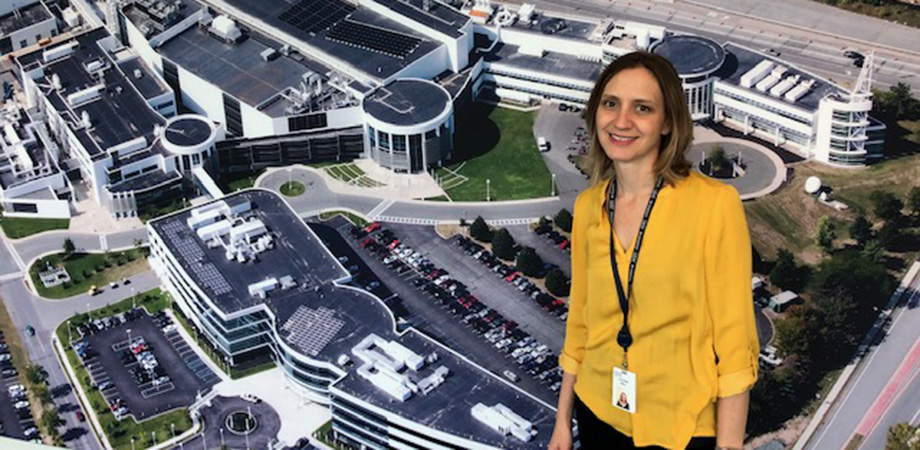#FacesofPhotonics: Lithographer Luciana Meli

SPIE Member Luciana Meli did not always intend to pursue lithography. Growing up in Mexico City with a civil engineering professor as a father, she was inspired by his "dedication to rationally understanding the world around him through the lens of science."
"This was initially what sparked my interest in a career in STEM," she says.
Following her father's example, Luciana attained a Bachelor of Science in chemical engineering from Universidad Nacional Autónoma de México. After this, she moved to the U.S. to pursue the next step: a chemical engineering doctoral degree at the University of Texas at Austin. Luciana had every intention to return home after completing her graduate studies, but her desire to do innovative research pushed her to stay in the U.S., where she ended up accepting a postdoc at the University of Minnesota.
So where did her interest in lithography and semiconductors come from? Luciana began to consider this field when she looked for available positions at IBM in Albany, New York. "It was in an attempt to solve a two-body problem with my husband's career and mine," she shares. "While I didn't do any lithography work during my PhD or postdocs, I did do research in polymers and biotechnology, and that was applicable."
Now, totally immersed in the lithography world with her career at IBM and involvement as a session chair at SPIE Advanced Lithography, Luciana reflects on her roundabout entry into the field. "It was not a very straight path to get to where I am today, but I have never once regretted it. In the end, what drives me is having interesting problems to solve - and there are certainly no lack of technical challenges in this area! I love working in a field where there are interesting science and engineering problems around every corner."
Enjoy the SPIE Faces of Photonics interview with Luciana!

Anuja de Silva, Luciana Meli, and Jing Guo show off a silicon wafer with micro chips.
1. Explain your current research/what you do at your job. How does your work impact society?
I currently manage a multidisciplinary group that focuses on advancing the building blocks of lithographic patterning to help push the limits of chip technology. I am constantly amazed at the technological breakthroughs required to reliably print the small features - on the order of a few atoms! - which allow us to improve performance of semiconductor devices that are so ubiquitous in our society. It is exciting to help build the devices that will allow us to enter the era of artificial intelligence.
2. Have you ever had to embrace failure at your job?
Working at the forefront of research requires embracing failure: it is a natural part of learning. I found this to be one of the most challenging aspects of my doctoral work. Confronting the fact that your knowledge of any given phenomena is incomplete, and all you can do is take small steps to fill in the gaps, while understanding that every failed experiment is an opportunity to learn, is one of the most important lessons one can acquire as a researcher.
If you are not failing often, you should be working on more challenging problems!
3. What is your advice to others in the STEM community?
I am a firm believer in passionate dedication to goals, both big and small. If you have a grand, long-standing dream, go for it, but don't forget to look around. Often, a great opportunity might be lying just within your periphery. It may not be exactly what you had planned or trained for, but in most STEM careers it is often the skills rather than the specific knowledge that make you most valuable. If you enjoy learning and are willing to move out of your comfort zone, being flexible in your career can open doors all around you.
| Enjoy this article? Get similar news in your inbox |
|



